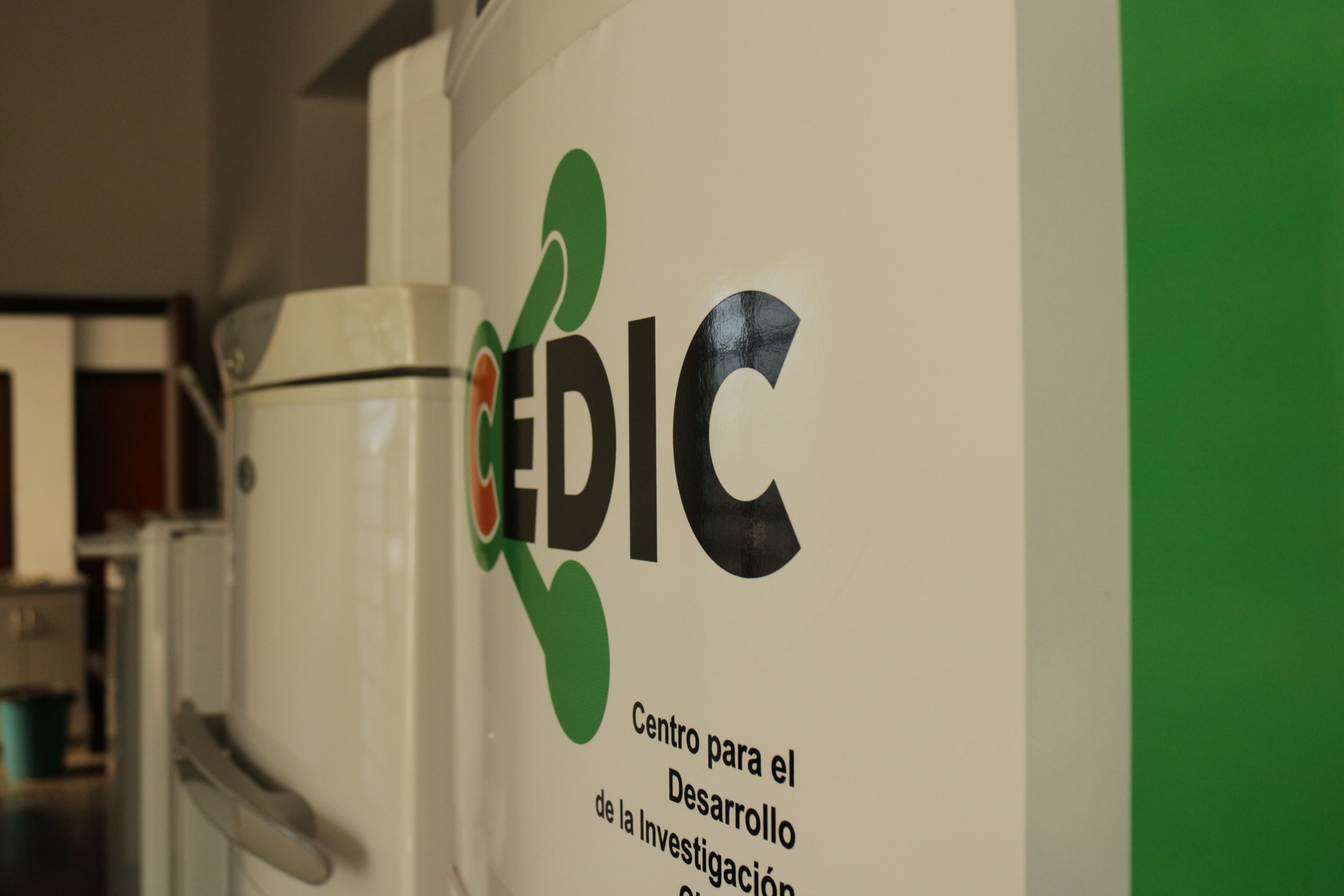

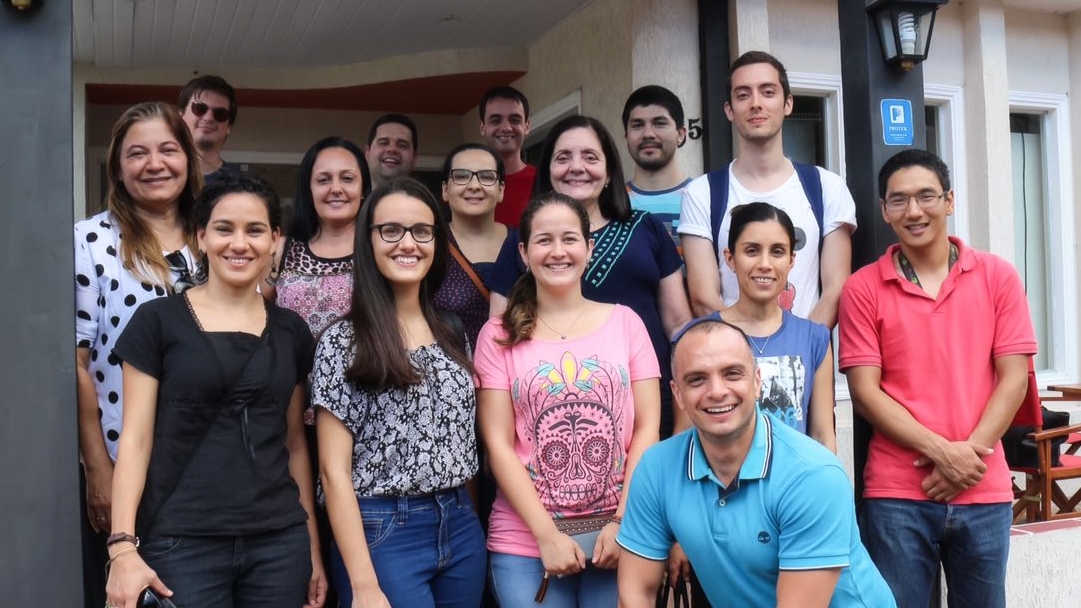
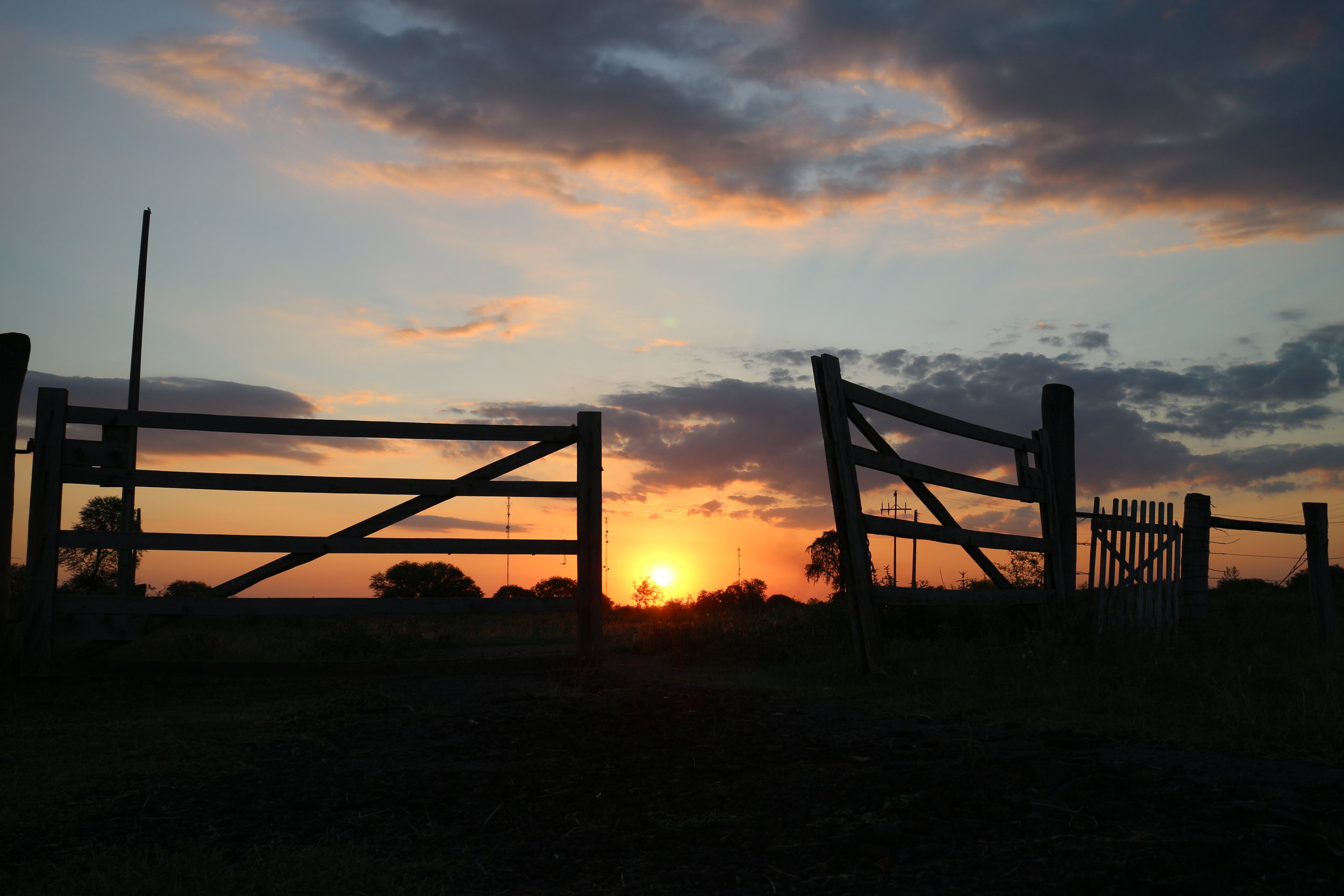



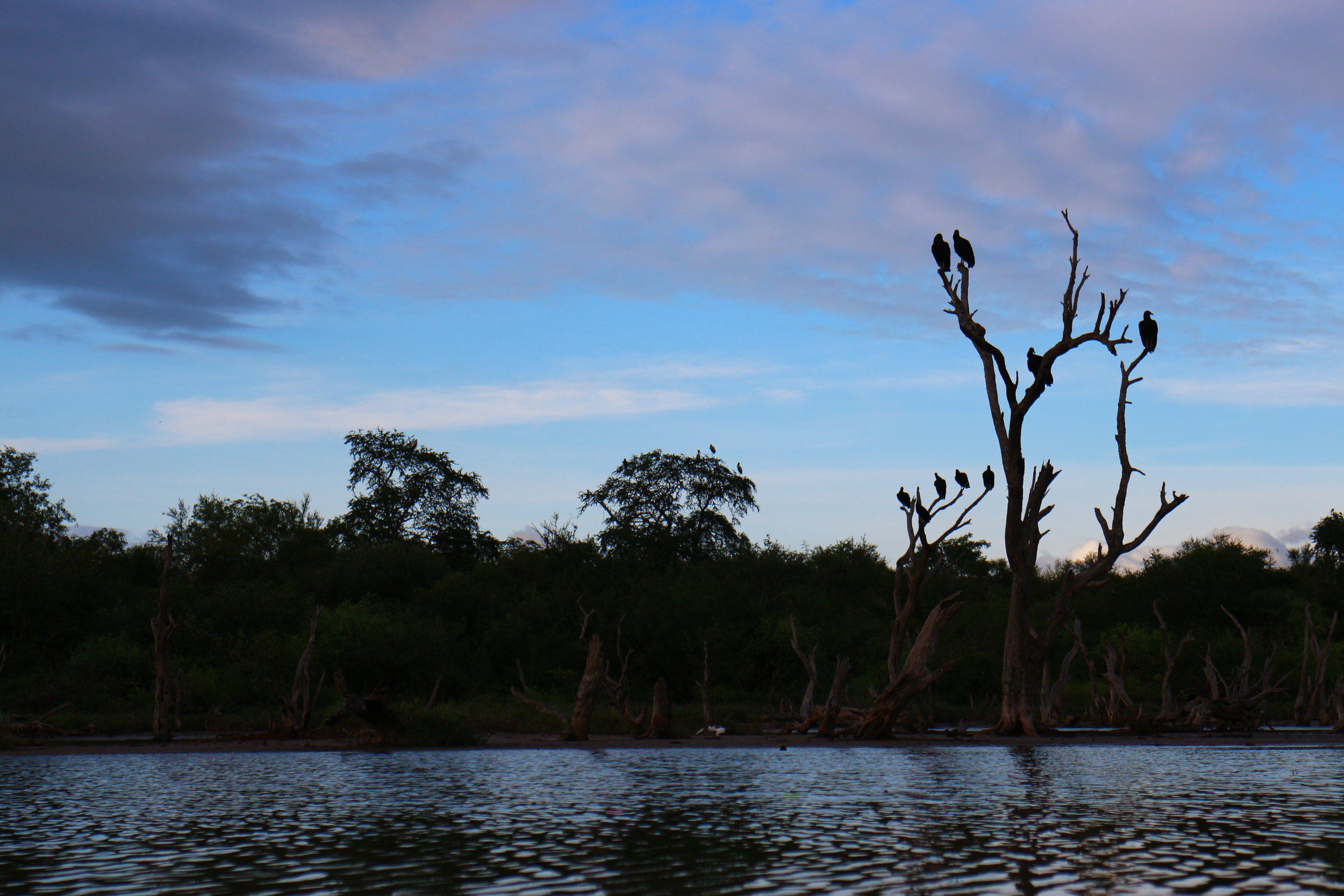
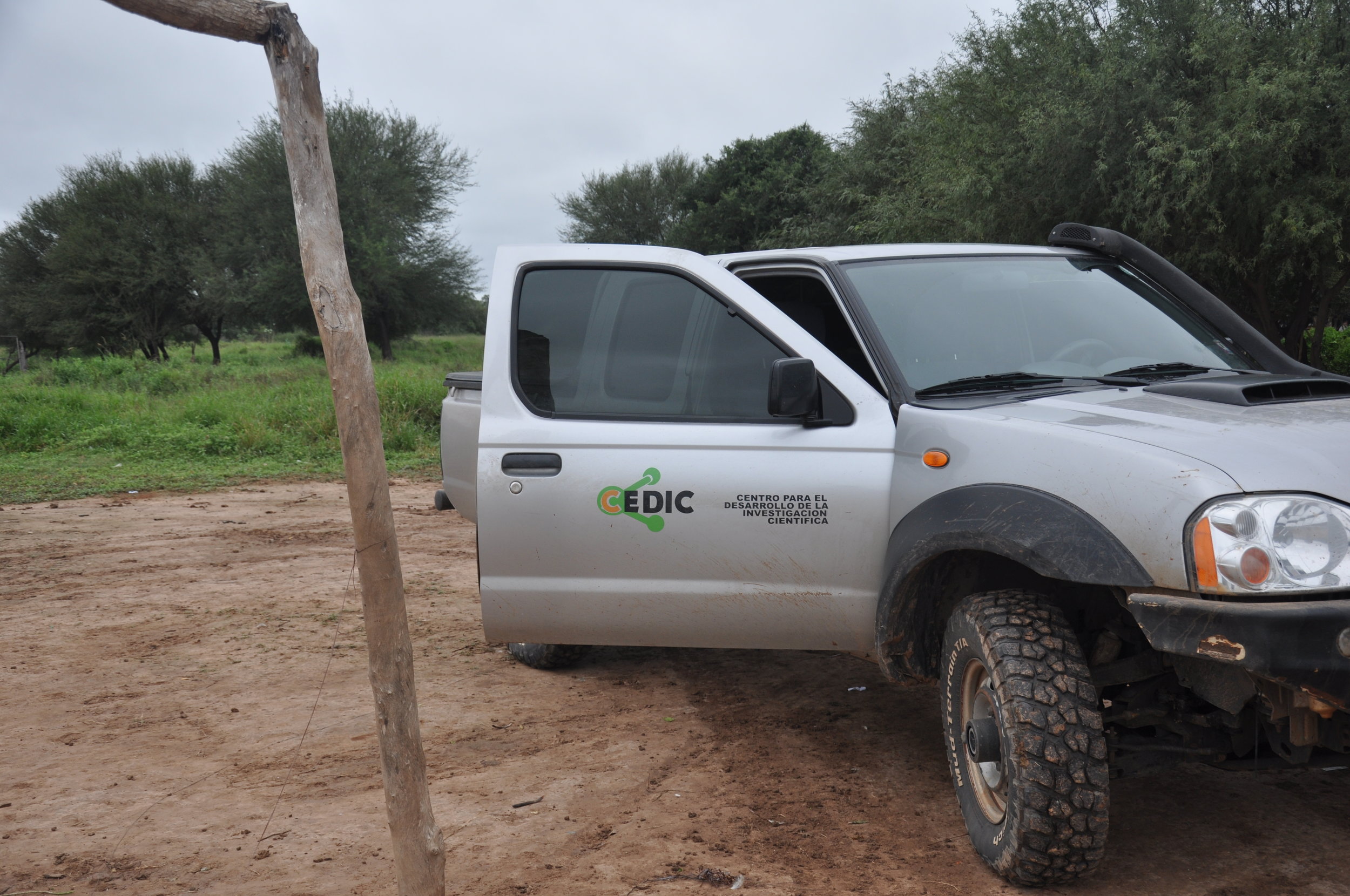
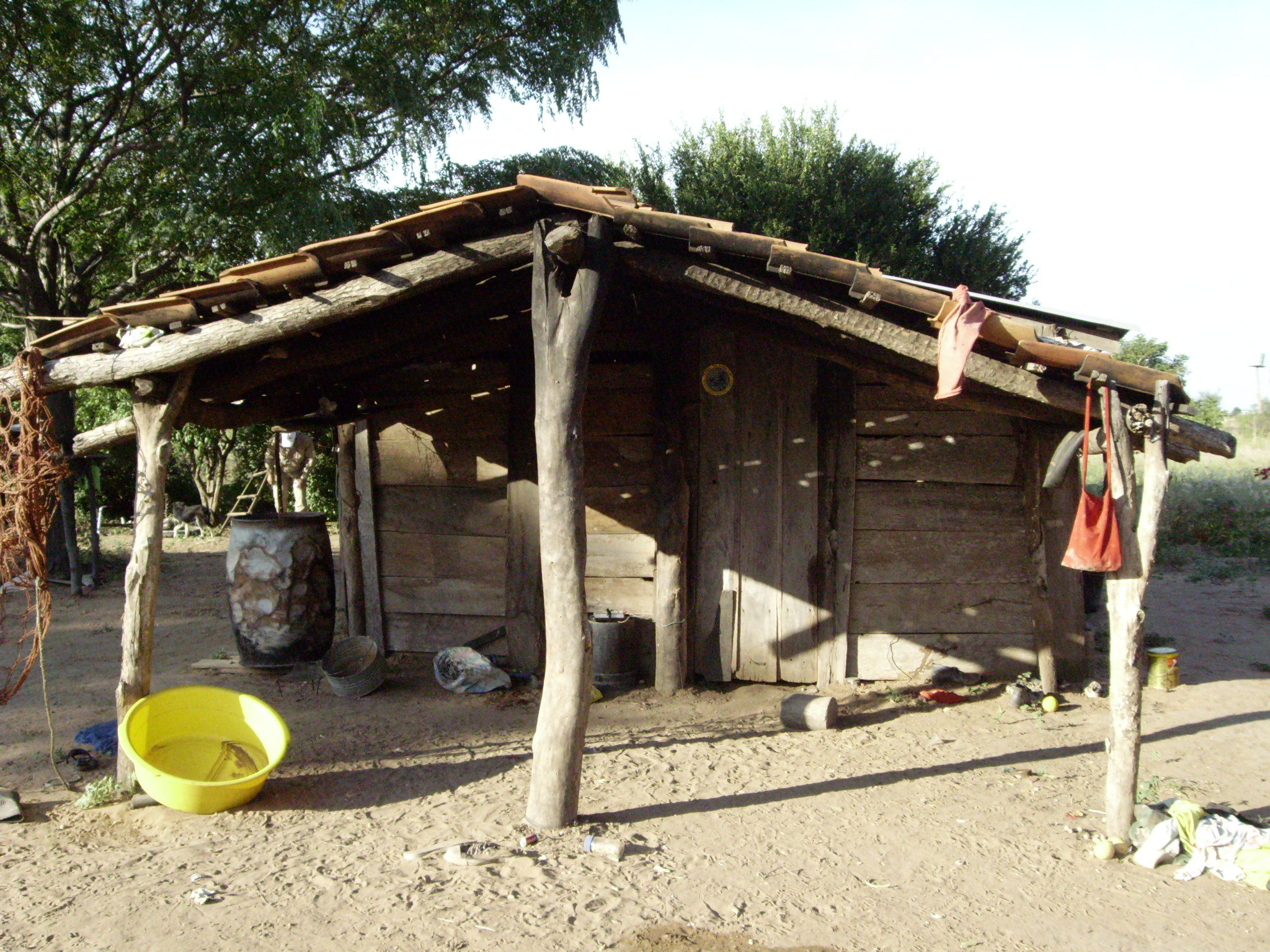
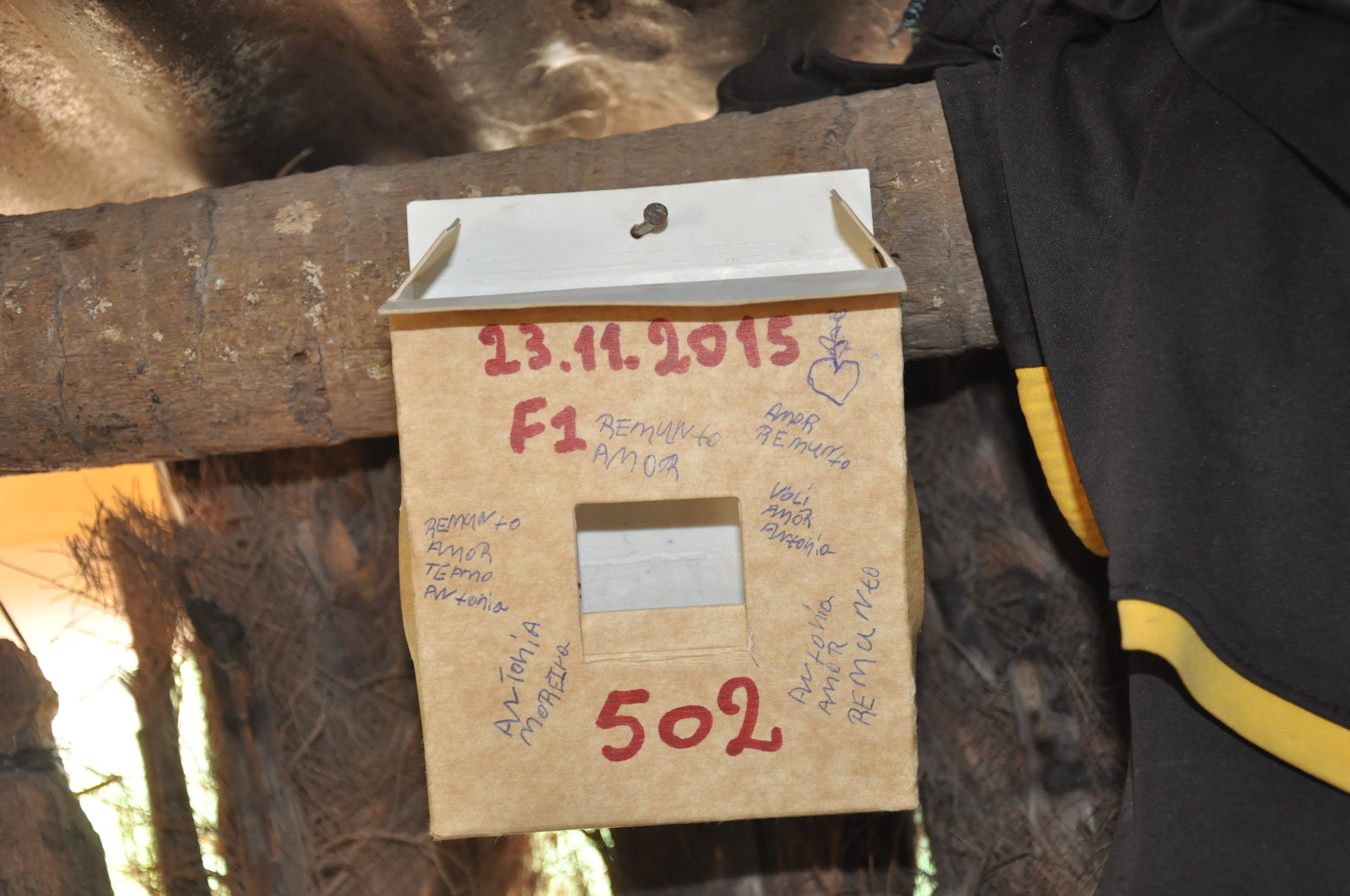
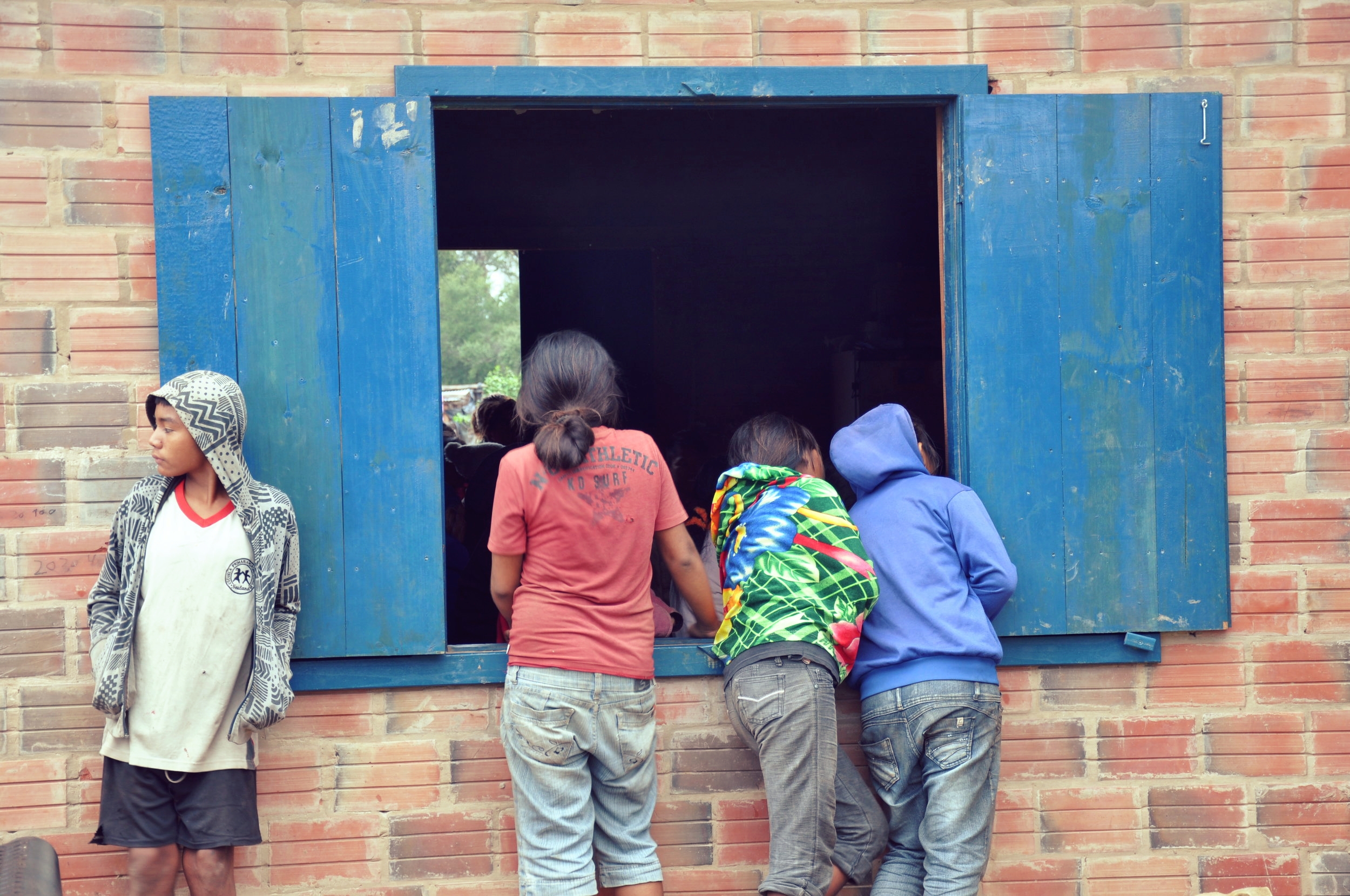
CEDIC
Centro para el Desarrollo de la Investigación Científica
PROCESAMIENTO DE MUESTRAS EN EL LABORATORIO
The study of local biodiversity is an unavoidable task to ensure its conservation. Knowledge of local biodiversity benefits communities through the maintenance of goods that ecosystems provide, which directly or indirectly contribute to quality of life.

ESTUDIOS DE CAMPO EN EL CHACO
To address this global situation it is necessary to strengthen local capabilities by giving them tools to contribute to our knowledge of biodiversity and the different processes that work within it, as well as the interactions between different species and the diseases that arise in human populations as a result of this contact.
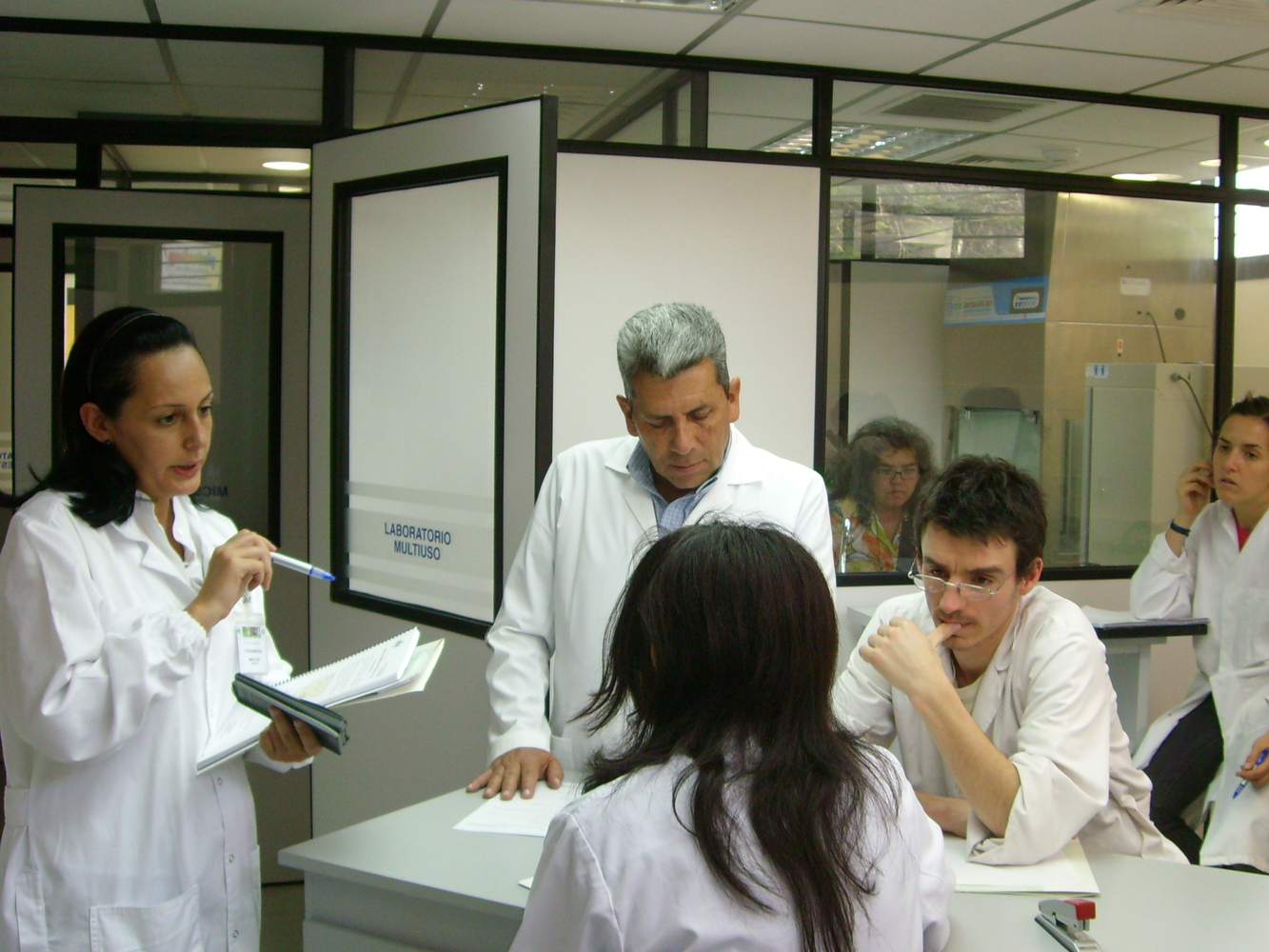
CEDIC is interested in joining forces with international organizations to avoid duplicating activities while at the same time strengthening the same fields of activity where the impact of the health-environment dyad has been positively reinforced.
Projects
Our present and future work

“Origen de las reinfestaciones intra y peri domésticas de Triatoma infestans en viviendas indígenas del Chaco Paraguayo” UNICEF / UNDP / World Bank / WHO, Special Programme for Research and Training in Tropical Diseases (TDR).
“Sources of reinfestation by major vectors of Chagas disease after residual insecticide spraying” UNDP / World Bank / WHO, Special Programme for Research and Training in Tropical Diseases (TDR).
“An ecosystem perspective of the process of reinfestation by Triatoma infestans in rural communities of the Gran Chaco ecoregion” INTERNATIONAL DEVELOPMENT RESEARCH CENTRE (IDRC)
“Social Networks 2008-2010” ARIZONA STATE UNIVERSITY
“Rational search of new compounds of leishmanicidal activity applying in silico and in vitro methods” THE ACADEMY OF SCIENCE FOR THE DEVELOPING WORLD (TWAS)
“Synthesis of a small library of hydrobenzyl derivatives bearing potential trypanocidal and leishmanicidal activity” INTERNATIONAL FOUNDATION FOR SCIENCE (IFS)
“Análisis de la diversidad genética de Mycobacterium tuberculosis en el Chaco Paraguayo”. School of Human Evolution and Social Change Arizona State University. 2010-2014.
“In vitro assays of 2,5-dihidroxibencil derivatives on Trypanosoma cruzi and Leishmania donovani” International Society for Infectious Diseases (ISID), EEUU. 2011 – 2012
“Towards a comprehensive approach to the control of Chagas disease in indigenous communities of the Paraguayan Chaco” Sanofi Espoir Corporate Foundation. 2012 – 2013
“Detección automatizada de reinfestación por Triatoma infestans” Universitat de les Illes Balears. 2012 – 2014.
“Innovación y fortalecimiento en el desarrollo de principios activos para el control de enfermedades parasitarias relacionadas con la pobreza” Programa de Cooperación Interuniversitaria e Investigación Científica entre España e Iberoamérica –AECID. Acciones Preparatorias. 2012
“Addressing the emergence and spread of Leishmaniasis in the borders of Argentina, Brazil and Paraguay” fue aprobado y financiado por el IDRC (Centro Internacional de Investigaciones para el Desarrollo) de Canadá, 2014-2016.
MERCOSUR Structural Funds Multistate Project (FOCEM) entitled: "RESEARCH, EDUCATION AND BIOTECHNOLOGY APPLIED TO HEALTH", 2011-2015. Amount: US$ 2,000,000 for Paraguay.
"Design, synthesis and biological evaluation of new polyphenols with potential leishmanicidal activity".. Agencia Nacional de Investigación e Innovación – ANII Montevideo, Uruguay 2013-actual
Mundo Sano Fundation: Promoting the Control of Chagas Disease in the Gran Chaco Region of South America. Cooperación Técnica Regional Bid/Mundo Sano-Cedic-Senepa.
GHIT/Mundo Sano Fundation/ISGlobal: Inicio 1/04/2021. Field validation of alternative diagnostic methodologies: rapid tests and Chagas-LAMP for the detection of chronic and congenital Trypanosoma cruzi infection.
ISGlobal/AECID: 1/04/2021. "Strengthening the MSPBS in the global fight against Chagas disease". Administración del Proyecto de EU$ 30.000 (1 año)
Universidad of Bath/UK:
• The development of a genomics toolkit for surveillance of Chagas Disease. University of Bath/CEDIC (concluido. Falta Seminario). Eu$. 25.000. Elab de Publicación.
• Digital parasitology with open robotic microscopes. Dr Richard Bowman, University of Bath, UK (en ejecución FIUNA/BATH/CEDIC).
Título del Proyecto: PINV18-107-Potencial actividad antitumoral in vitro de componentes de venenos de serpientes del genero Bothrops. Periodo: 2020-2021
Título del Proyecto: PINV18-178-Caracterización de los nichos ecológicos de las leishmaniosis en la Reserva de Biósfera del Bosque Mbaracayú Periodo: 2020-2021
Título del Proyecto: PINV18-409-Cribado de persona sanas en edad reproductiva en busca de estado portador de la mutación más frecuente de Fibrosis Quística en la población de Asunción Periodo: 2020-2021
Título del Proyecto: PINV18-712-Delimitación de géneros y evolución floral en el clado Cyclanthera (Cucurbitaceae, Sicyoeae)
Periodo: 2020-2021
Título del Proyecto: PINV18-933-Implementación de técnicas moleculares para la detección panbacteriana en infecciones de difícil diagnóstico a partir de material biológico e implantes biomédicos Periodo: 2020-2021
Título del Proyecto: PINV18-1221- Sistema de monitoreo remoto escalable para control de artrópodos de importancia agrícola y sanitaria Periodo: 2020-2021
"Determinación de la actividad in vitro de nuevos derivados polifenólicos, sobre Trypanosoma cruzi y Leishmania sp." Consejo Nacional de Ciencia y Tecnología (CONACYT) Paraguay.
“Eficacia de las diferentes fracciones de la Stevia sobre microorganismos prevalentes en la placa bacteriana intraoral” (Colaboración con la Facultad de Odontología-UNA). Consejo Nacional de Ciencia y Tecnología (CONACYT) Paraguay.
“Mejora de acceso al agua de seis comunidades indigenas mediante sistemas autonomos y sostenibles en Caazapa y Canindeyú (Paraguay)” Fundación Moises Bertoni.
“Ensayos preclínicos de 2,5-dihidroxibencil derivados sobre modelos animales experimentalmente infectados con Trypanosoma cruzi” Consejo Nacional de Ciencia y Tecnología (CONACYT) Paraguay. 2010 – 2012
“Evaluación de la actividad leishmanicida de secreciones glandulares de anuros del género Rhinella del Paraguay” Consejo Nacional de Ciencia y Tecnología (CONACYT). 2012-2014.
Detección precoz de insectos vectores de la enfermedad de Chagas mediante trampas cebadas con sistemas automatizados y de lenta liberación. Consejo Nacional de Ciencia y Tecnología Proyecto Asociativo 2015-2017.
Valoración de la actividad biológica de nuevas formulaciones farmacéuticas de nifurtimox y anfotericina B. Consejo Nacional de Ciencia y Tecnología. Proyecto Asociativo 2015-2017.
Estudio de los componentes del veneno de serpientes Bothrops diporus y su aplicabilidad en farmacología experimental de enfermedades negligenciadas. Consejo Nacional de Ciencia y Tecnología. Proyecto Institucional 2015-2017.

1- PINV15-216: Optimización de una técnica de PCR multiplex a tiempo real para la detección de mecanismos de resistencia CTX-M, KPC, VIM y OXA-48 en enterobacterias de referencia. CONACYT 2016-2018. Institucional.
2-PINV15-260: Primera caracterización Molecular depersonas afectadas por la Fibrosis Quística en elParaguay: mutación ∆F508. CONACYT 2016-2018. Institucional.
3-PINV15-465: Causas de Hipoacusia Sensorioneural en una población predominantemente Pediátrica de dos Centros Hospitalarios de referencia en Paraguay. CONACYT 2016-2018. Institucional.
4-Diseño de una intervención en el manejo de desechos domiciliarios y determinación del impacto esperado en el riesgo de enfermedades transmitidas por Aedes aegypti en dos barrios de San Lorenzo. CONACYT 2016-2017. Iniciación.
5-Puesta a punto de métodos fluorescentes cuantitativos para la determinación de la actividad antibacteriana utilizando el sustrato Resazurina. CONACYT 2016-2017. Iniciación.
6. Design of a household waste management intervention and determination of the expected impact on the risk of diseases transmitted by Aedes aegypti in two neighbourhoods of Asunción. 2016-2018
Ecosystem health, disease transmission and habitat alteration in the Mbaracayú Forest Biosphere Reserve, Canindeyú Department, Paraguay.
The researchers and all the technical and field staff of the Centre for the Development of Scientific Research (CEDIC) and the Polytechnic Faculty of the National University of Asunción (FP-UNA), who carried out this study, dedicate this manuscript to the indigenous communities of the Chaco, represented by the Maskoy Community, 10 Leguas and the Nivaclé Tiberia Community.
The indigenous peoples of the Chaco live in poverty and abandonment. Being poor and being indigenous is a double burden for those who do not have full access to quality education and health. Efforts to combat Chagas disease are great, but Chagas is a non-eradicable and multifactorial social pathology, making surveillance and sustainability of actions the most important challenges facing public health in Paraguay and Latin America.
Although Chagas disease is not a priority for them, as is the lack of water, these indigenous communities shared with us the desire to achieve a tool that would allow us to monitor the vectors that transmit the parasite that causes the disease. The contributions to knowledge expressed in this manuscript are a dream shared by us, the researchers who are working to solve this problem, and by the communities, because each of our visits was the hope of something good for them.